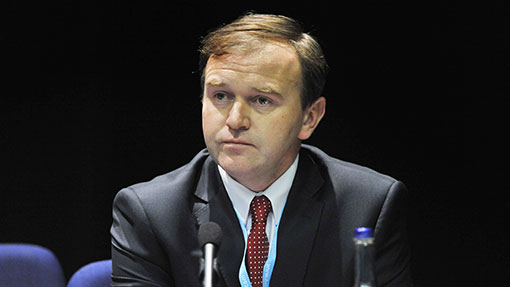No badger cull rollout before 2015 general election, says Eustice
 ©Ray Tang/Rex Shutterstock
©Ray Tang/Rex Shutterstock A decision to roll out the badger cull to other counties will only be made after the general election in 2015, according to farm minister George Eustice.
Speaking to Farmers Weekly, Mr Eustice said that any decision to extend the culls to at least 10 further counties would depend on the success of the current pilots.
Therefore, for the time being, the government was focusing its efforts on ensuring that the methodology used the pilot culls can be shown to be successful.
The second year of the badger culls, part of a 25-year government strategy to eradicate bovine TB in this country, got under way in the pilot counties of Gloucestershire and Somerset 10 days ago.
This week NFU leaders made fresh calls for the government to extend culling across other regions in the West Country, where the disease is rife.
Read also: TB sees 17,000 cattle slaughtered in six months
But Mr Eustice said widening the culls to other counties, such as Cornwall, would depend on getting the pilots right first.
“We have been very clear that we cannot eradicate bovine TB unless we eradicate the disease in wildlife,” he said.
“We’ve put in place all of the recommendations made by the Independent Expert Panel (IEP). The marksmen who are taking part in the culls this year received dedicated training in August.
“We have made sure that there is no shortage of equipment, when it comes to night vision equipment.
“What we really need to do is focus all of our efforts on getting these culls rights, improving the methodology and getting closer to our targets.”
Mr Eustice continued: “The decision (to roll out the culls) will come after that. We have got a general election in May.
“If we were to roll out culls, it would be dependent on what an incoming government would decide.
“For this current government, we have always been really clear that there is no example of another country in the world that has tackled TB without tackling it in the wildlife.’
By contrast, the Labour Party said it would abandon the government’s badger cull policy, if elected. Instead, Labour would follow Wales’ TB strategy, which includes strict movement controls, annual cattle testing and vaccination of badgers.
Mr Eustice said free shooting and cage trapping and shooting were the only culling methods available to the government at the moment. He insisted that using this combination was the “right mix” to remove significant amounts of badgers in TB hotspots.
The government has come under fire from animal rights groups for scrapping the IEP after the first year of the culls.
Last month, the Badger Trust’s High Court bid to overturn the decision was refused. But the trust is planning to launch an appeal.
Mr Eustice defended the decision to remove the panel, saying: “The IEP didn’t do any of the (badger) post-mortems and were not in the field monitoring the cull.
“All they did was a desktop exercise at the end of the culls, using the data provided to them by AHVLA and Natural England.
“Other ecologists and field monitors were out there monitoring the culls. We didn’t need them to repeat the exercise.”
Field experts will monitor this year’s culls closely and the results will be independently audited, he added.
Meanwhile, the government has launched a badger vaccination scheme to create “buffer zones” in edge area counties, such as Oxfordshire and Hampshire.
“We believe vaccinating badgers in these counties could help to prevent the flow of infection from west to east,” explained Mr Eustice.
The government was continuing research and development on cattle vaccines associated diagnostics, with field trials due to start in the UK next year.
“We have to be realistic about the time it would take to build these field trials and get a vaccine for use without having any trade restrictions in the EU might take eight to 10 years,” said the minister.
In the meantime, he praised farmers, landowners and cull contractors for continuing with the pilot culls despite a backlash from animal rights activists.
“They need to know that they have got our support,” said Mr Eustice.
